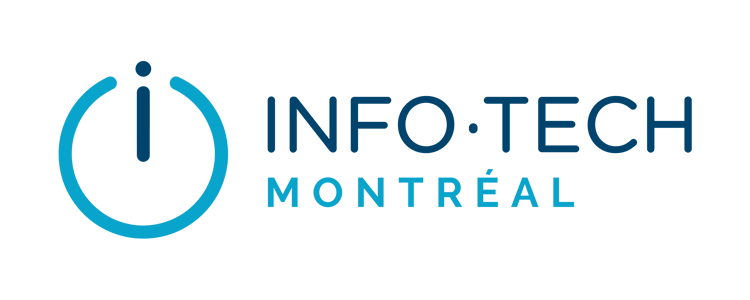Top 10 Benefits of Outsourcing IT Services As a business Owner
- Do you or one of your employees spend several hours a week dealing with IT problems, even though this is not your specialty?
- Are you worried that your hardware and software are becoming obsolete or no longer sufficient to support the evolution of your business?
- Are you concerned about the cybersecurity of your IT infrastructure?
- Are you looking to reduce the costs associated with managing your IT department?
If you’re asking yourself one or more of these questions, then perhaps outsourcing your IT management to external IT experts is a viable solution for your business. In this article, I review ten benefits frequently associated with outsourced IT services, hoping that this information can help you make an informed decision.
Key Takeaways
- Outsourcing IT services significantly reduces operational costs, converting fixed expenses into scalable ones while eliminating the need for full-time, in-house IT staff.
- You gain immediate access to a team of experts who are up to date on the latest technologies, cybersecurity threats, and industry best practices—without having to hire or train internally.
- Enhanced security and regulatory compliance help protect your business from cyberattacks and costly penalties, particularly important for small businesses that are increasingly targeted.
- Proactive IT management and regular system checks help minimize downtime and ensure quick recovery in the event of disruptions, giving you peace of mind and improved business continuity.
- Outsourcing boosts flexibility, productivity, and competitive edge by allowing your team to focus on core business activities while IT experts handle the tech infrastructure behind the scenes.
TABLE OF CONTENTS
1. Cost Savings
2. Access to Expertise
3. Enhanced Security and Compliance
4. Focus on Core Business Activities
5. Improved Business Continuity and Disaster Recovery
6. Scalability and Flexibility
7. Reliable IT Support and Proactive Maintenance
8. Increased Efficiency and Productivity
9. Competitive Advantage
10. Predictable IT Costs and Budgeting
In Summary
1. Cost Savings
Maintaining an in-house IT team is expensive. The average salary for a full-time IT specialist in Canada is around $74,740 per year, not including benefits, training, and equipment costs. For many small and medium-sized businesses (SMBs), this is simply not sustainable.
Outsourcing allows you to get the desired level of expertise without the overhead cost of maintaining a full-time staff. This is one of the key benefits of outsourced IT services—you only pay for services you need, when you need them. A skilled IT provider like Info-Tech Montréal has plenty of experts to do the work for you, so you no longer have to worry about staff departures or sick leave; we’re here to support you.
This arrangement turns IT from a fixed cost into a variable one, helping you allocate resources more efficiently and giving you more control over your budget. For example, if your business needs more IT support during a busy season or a project, you can scale up your outsourced team. If you don’t need certain services during quieter periods, you won’t pay for them. This ability to adjust your expenses based on your needs helps you keep costs predictable and manageable.
2. ACCESS TO EXPERTISE
If there’s one environment that’s constantly evolving, it’s IT. Technologies frequently become obsolete, software evolves rapidly, and cyberthreats are continually on the rise. Trying to keep up to date is enough to raise the blood pressure of any business owner. That’s where outsourcing managed IT services can make all the difference.
Outsourcing gives you access to experts who are constantly learning and staying on top of the latest technologies. You don’t have to worry about managing updates, new software, or understanding the latest security threats—they’ve got it covered for you.
Take network management, for example. Ensuring seamless operations and protecting against cyber threats demands ongoing monitoring and proactive maintenance. An experienced IT provider handles this for your business with regular check-ins and responsive service.
And then there’s cybersecurity, which I can’t emphasize enough. With threats evolving daily, having a dedicated IT team means staying vigilant and protecting your business from attacks that could drain your finances significantly and often irreparably.
3. ENHANCED SECURITY AND COMPLIANCE
Cybersecurity and compliance are no longer buzzwords used by large organizations. They are essential for the survival and success of your business, no matter the size of your operation. The consequences of a data breach can be devastating, damaging your reputation, shaking customer trust, and stalling growth. More recently, small businesses appear to be prime targets for cybercriminals, accounting for 43% of all data breaches.
Even more concerning, one in four businesses has no security plan in place, leaving the door wide open for attacks. Thanks to outsourced IT services, these risks can be better mitigated. Here’s how:
- By meeting industry regulations: Canadian regulations, such as PIPEDA and Law 25, or GDPR and SOC 2 internationally, are designed to ensure the protection of sensitive data. Non-compliance can result in severe penalties and damage your brand’s credibility. Outsourcing helps you maintain your business compliance and good reputation.
- By reducing internal security risks: Many breaches stem from human error, such as weak passwords or misconfigured systems. An outsourced IT security team implements strong security protocols, provides employee training, and ensures proper access controls to prevent these mistakes from occurring.
- By ensuring strong data protection: Small businesses are disproportionately affected by cyberattacks. When you outsource your IT, you gain access to sophisticated security tools and IT experts who stay ahead of emerging threats and vulnerabilities.
4. FOCUS ON CORE BUSINESS ACTIVITIES
Running a business requires balancing several priorities at once and the last thing you need is to get caught up in IT issues.
Outsourcing IT services allows you to put technical challenges in the hands of experts. This leaves your internal teams free to concentrate on strategic, high-value tasks.
When you delegate IT management to a trusted provider, your team can focus on day-to-day operations and business growth. Outsourced IT services help:
- Free up internal resources by eliminating IT problems that are slowing down your team.
- Improve team morale by reducing distractions caused by technical problems.
- Increase business efficiency by enabling your employees to better focus on their core functions and innovation within your company.
5. IMPROVED BUSINESS CONTINUITY AND DISASTER RECOVERY
When unexpected disruptions occur, whether it’s a system crash, a cyberattack, or a natural disaster, a business continuity plan can be the difference between staying afloat or sinking. Having a reliable backup and disaster recovery solution in place is key to ensuring that your business can recover quickly and continue operating smoothly.
With outsourced IT services, you are assured of proactive monitoring and maintenance that can minimize downtime. When issues arise, a dedicated team can spot them early and address them before they cause any irreversible damage. And if the worst does happen, you’ll have disaster recovery solutions that will kick into gear and restore your systems, data, and operations quickly, ensuring minimal disruption.
6. SCALABILITY AND FLEXIBILITY
Running a business means constantly adapting to changing circumstances. Whether you’re scaling up for a busy season or adjusting to new market trends, your business must stay agile. This is where outsourcing your IT services can really give you an edge.
Enjoy the flexibility to easily scale services up or down based on your current business needs. Need more resources for a product launch or a large project? No problem. Want to scale back during slower months? That’s easy too. You’re not locked into long-term contracts or stuck with paying for services you don’t need.
It’s all about staying nimble and efficient without the burden of constant adjustments or worrying about whether your IT will hold up as your business progresses.
7. RELIABLE IT SUPPORT AND PROACTIVE MAINTENANCE
When running a business, downtime is never an option. Every minute your systems aren’t working is an extra minute you’re losing potential customers, revenue, and productivity. Unplanned downtime can cost your business heavily.
With outsourced IT services, you benefit from reliable support and proactive system maintenance designed to prevent problems before they arise. When issues occur, you can count on expert troubleshooting and timely response to keep your business running smoothly.
8. INCREASED EFFICIENCY AND PRODUCTIVITY
IT downtime can quickly hamper productivity, but outsourcing your IT services can eliminate these bottlenecks. 65% of companies report that such a management method enables them to concentrate more on their core activities, increasing overall productivity. Outsourcing IT services also makes it possible to leverage advanced technologies to boost efficiency throughout the company and optimize IT processes.
IT disruptions can quickly derail productivity, but outsourcing your IT services can eliminate these bottlenecks. 65% of businesses report that outsourcing IT functions allows them to focus more on their core activities, boosting overall productivity. Outsourcing IT services also helps leverage advanced technologies and optimized IT processes to drive efficiency across the business.
While your IT systems continue to run smoothly, you can stay productive and meet deadlines without being sidetracked by technical problems.
9. COMPETITIVE ADVANTAGE
Staying ahead of the competition requires constant innovation, and technology plays a key role in this race. While you focus on developing new products, improving customer experiences, or expanding into new markets, your IT experts handle the technical side, keeping everything running smoothly behind the scenes.
In addition to helping maintain operations, a solid IT strategy helps you use technology to stay ahead of the competition. With the right supplier, you get the tools, expertise, and agility you need to move forward smarter and faster than the rest.
10. PREDICTABLE IT COSTS AND BUDGETING
One of the final benefits of outsourced IT services is the predictability of your costs. Because you pay a fixed amount for your IT services, budgeting becomes easier.
Moreover, with this billing model and the services you select, you benefit from proactive management that helps prevent costly issues before they arise. For example, you can opt for cybersecurity services that avoid breaches of security or cloud services that enable you to recover your data quickly. In the event of a glitch, you won’t have to pay extra to fix specific problems.
When you can accurately forecast IT costs, you can better manage your budget and are free to reinvest in growth, safe in the knowledge that your business is well protected.
IN SUMMARY
As a business owner, you need to focus your time, resources, and energy on growing your business, not on solving IT problems or worrying about cybersecurity threats.
By outsourcing your IT services, you benefit from expert support, state-of-the-art technology, and proactive system management, without having to worry about managing them in-house.
Whether you aim to improve security, reduce costs, increase efficiency, or free up your team to focus on their core tasks, partnering with a reliable outsourced IT services provider can give you the peace of mind and flexibility you need to grow your business.
At Info-Tech Montreal, we offer comprehensive IT management services to help your business thrive, including remote monitoring, server management, cloud solutions, cybersecurity and business continuity planning, to name just a few. Focus on your core business while we take care of your IT needs efficiently and securely. Contact us today to schedule a no-obligation IT assessment and find out how outsourcing your IT services can benefit your business.




